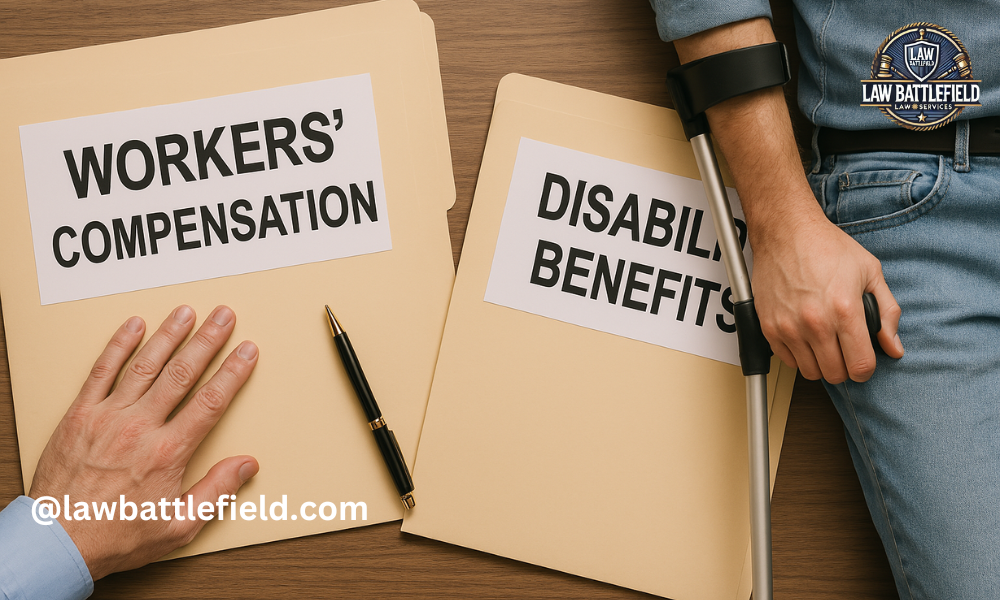Navigating injuries can be tough, especially when it involves changes to your work life. It’s important to understand the difference between workers’ compensation and disability benefits. These two programs offer help, but in distinct ways. Workers’ Comp provides support when you get hurt on the job. It covers medical bills and lost wages during recovery. On the other hand, disability benefits assist if you cannot work due to a long-term health issue.
Knowing which applies to your situation can make a difference in getting the right help. Injured Workers Law Firm can also guide you through this process. Understanding these differences will help you access the right support. This clarity can aid your recovery and financial stability. Remember, you are not alone. Simple steps can lead to better outcomes. Make sure you know your options and rights. Empower yourself with knowledge for a smoother journey to recovery.
What Is Workers’ Compensation?
Workers’ Compensation is a state-mandated program. It offers benefits to employees who get injured at work. These benefits include medical expenses and a portion of lost wages. Every state has its own rules. However, the aim remains the same: to protect workers and employers. For example, California’s Department of Industrial Relations outlines specific guidelines to ensure everyone’s safety. Learn more about these guidelines to protect yourself.
What Are Disability Benefits?
Disability benefits support workers who cannot continue their job due to a long-term injury or illness. These benefits differ from Workers’ Comp because they are not limited to work-related injuries. The Social Security Administration offers two types of disability benefits: Social Security Disability Insurance (SSDI) and Supplemental Security Income (SSI). Understanding these programs helps you decide which one suits your needs. Visit the SSA website for more information on eligibility and application procedures.
Comparing Workers’ Comp And Disability Benefits
Knowing the key differences between these two programs can help you make informed decisions. Below is a comparison table to guide you:
| Aspect | Workers’ Compensation | Disability Benefits |
| Eligibility | Injury or illness related to work | Long-term disability not limited to work |
| Coverage | Medical expenses, partial wage replacement | Financial assistance for living expenses |
| Duration | Temporary or until able to return to work | Usually long-term or permanent |
| Funding Source | State program funded by employers | Federal program (SSDI/SSI) |
How To Apply For Workers’ Compensation
If injured on the job, notify your employer immediately. They will help you complete the necessary paperwork. Each state has a different process, but prompt reporting is crucial. Your employer should have all required forms. Remember, state laws protect your rights to these benefits.
How To Apply For Disability Benefits
To apply for disability benefits, gather your medical records. The Social Security Administration will review your case. They look at your work history and medical condition to decide your eligibility. It’s helpful to seek guidance from professionals familiar with the process to avoid common pitfalls.
Making The Best Decision
Choosing the right benefit program depends on your situation. Consider the nature of your injury or illness. Ask yourself if it’s related to your job or if it will impact your work long-term. This assessment is vital in obtaining the right support. Seeking legal advice can also clarify your options and rights.
Understanding workers’ compensation and disability benefits can ease the stress of dealing with an injury or illness. By knowing your rights and options, you empower yourself to take the right steps towards recovery. Both programs are there to support you. Use them wisely to secure your health and financial future.
Was this article helpful? Check out more on Lawbattlefield.com





